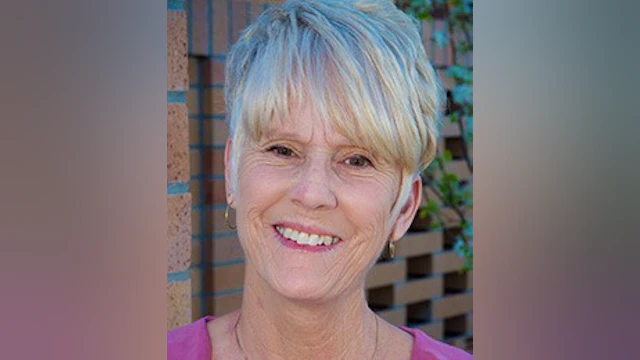Jul. 26, 2019 - Thirteen years ago, my son took his life. At the time, I could not imagine living one more day or hour without him, much less these many years. His absence was a heavy weight. I could barely breathe. The overwhelming pain, and the intense longing I felt for him, seemed unendurable.
With the passage of time and the facing of grief, I have adjusted to living my life without my son. Will I always wish it could have been different? Of course. Ryan’s death was out of order: my child dying before me.
In many ways it feels like a dream that my child was ever here. The passage of time poses its own challenges. Cultivating hope over the long haul has required both tenacity and forgiveness. I have learned – and continue to learn – to forgive reality for what it is. Since losing my son, many changes have taken place in my heart. The loss changed my life’s trajectory. I am not the same person I was before Ryan died. There is a distinct before and after.
How have I changed?
My son accompanies me on this road that is paved with both sorrow and joy. Not his physical presence, but a deeper knowledge that he is still with me. He guides me as I walk, often stumbling, as I move forward to make life better for others as an offering to him.
I have become an advocate for youth mental illness awareness and suicide prevention. As a teacher and as a parent, I was not educated about mental illness and was in denial when it came to my own son. I now know that most people who die by suicide had a mental health disorder- whether unrecognized, undiagnosed, undertreated or untreated. Half of all serious mental illness begins by age 14, and yet often treatment doesn’t begin until ten years later.
Many survivors find that volunteering to support others facilitates their own healing, too. I am a facilitator for the Survivors of Suicide support group in Albuquerque, New Mexico. This has been part of my healing journey. I value the fragility of life and the sacredness of every story I hear, from others who have lost loved ones to suicide. I value the privilege of being a companion to other hurting parents along the road of loss.
I have also become involved with a local program called Breaking the Silence NM. The program offers school presentations across the state, designed to help young people be in touch with their own mental health, and identify when what they’re going through might go beyond typical adolescence. We want them to know that treatment works, and that there is no shame in either counseling or medication. Additionally, we focus on the strengths associated with talking with a trusted adult about their struggles without shame or embarrassment; the importance of getting support from their friends; and exercise, eating right, and avoiding alcohol and smoking.
My involvement in these things has helped me in my own continuing journey as a long-term survivor of suicide loss.
In 2016, in Chicago, I attended the first AFSP long- term survivors of suicide loss conference, called “Our Journey Continues.” The acknowledgement I felt at referring to myself as a long- term survivor was a refreshing relief. Grief is still grief, but society, and even we survivors, haven’t always known how to refer to ourselves. Long- term loss needs to be acknowledged in the suicide survivor community. We still need to be gentle with ourselves and take time to remember. As the author Rachel Naomi Remen says, we need to recognize the value of “revisiting our wounds to see what might have grown there.”
I sense that Ryan has left me with many gifts. I believe I am a better human being. I am less impatient. (Though not always!) I am less judgmental, and view life less through a black and white lens, but rather in shades of gray. I realize now that there is so much I don’t understand about our human lives, but I sense the mystery in them. Since Ryan’s loss, I have cultivated deeper friendships with others. I see the wisdom in my wound that offers a place of refuge and meaning not only for myself, but for others. I see more of the deep down of things, and have the sense that God is not hurried along in time. This understanding has allowed me to give myself permission to slow down and be more mindful in my life.
Coping with long-term loss is different than the more immediate loss of early grief. And somehow, we learn to find and use tools like journaling and writing poetry that lets in a little more light. We learn to be okay with the grief process, and maybe even to accept that process. We educate ourselves about suicide, and some of us find a way to heal our grief through suicide prevention advocacy, as well as the community found within AFSP’s Out of the Darkness Walks, and International Survivors of Suicide Loss Day.
This poem expresses the longing I feel for my son, even as my life moves forward.
Don’t fade from my mind like words written on a letter long ago.
The memory of you was vivid and shot through with color.
The brightness of your smile, the warmth in your hazel eyes, the joy of your laugh.
With the passage of time I am unable to imagine how you would look now.
I see you through the sepia tones of time.
Stay sharp, stay poignant.
Don’t leave me again.
Learn more about healing after a suicide loss.
Find an AFSP chapter near you.
